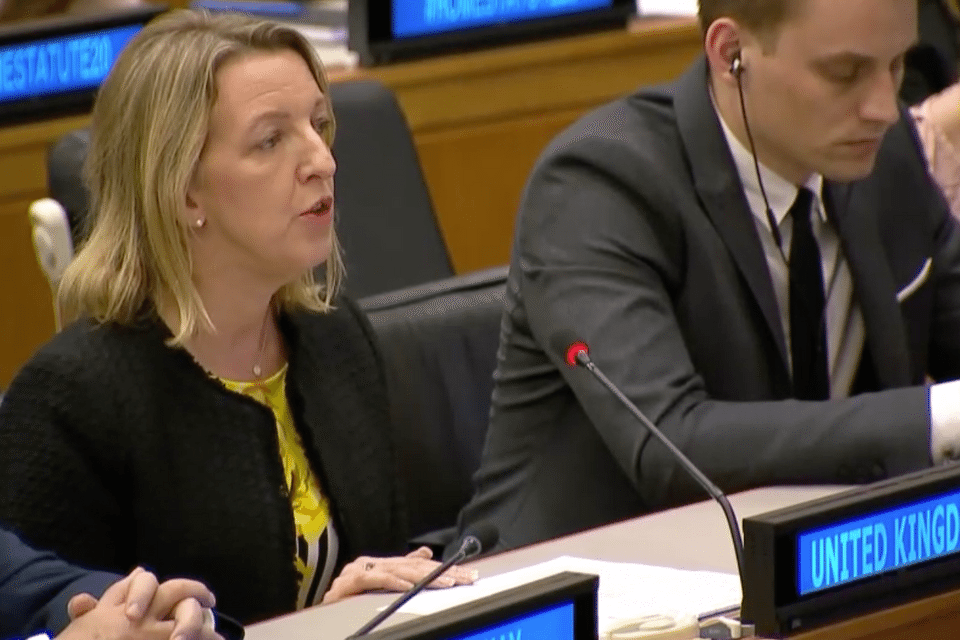Marking 20 years since the adoption of the ICC Rome Statute
Statement by Susan Dickson, UK Legal Counsellor at the UN at the UN High Level Event on the 20th Anniversary of the Rome Statute.

Today the United Kingdom is pleased to be participating in this occasion marking twenty years since the adoption of the Rome Statute, the historical founding treaty of the International Criminal Court.
The UK has supported the Court since its inception. We have done so because we recognise the value of an independent and impartial international body empowered to investigate and prosecute those responsible for the most serious crimes of international concern in circumstances where States are unwilling or genuinely unable to do so.
Today, as we have heard, also marks the activation of the Court’s jurisdiction over the crime of aggression in accordance with the decision of the Assembly of States Parties in December 2017. The UN Security Council has the primary responsibility for the maintenance of international peace and security, and it is for the Security Council to determine when an act of aggression has occurred, as provided for in the UN Charter.
Nevertheless, we recognise that, following the ASP’s decision, it is for each State to choose whether to ratify the aggression amendments to the Rome Statute, and thereby accept the Court’s jurisdiction over the crime of aggression in relation to acts committed by its nationals and on its territory.
The UK continues to believe that the ICC plays an important role in holding to account the perpetrators of atrocities. That is why we continue to provide significant financial, political and logistical support to the Court to help it fulfil its mandate as efficiently and effectively as possible.
The ICC has achieved some notable successes in the 20 years since the adoption of the Rome Statute. As we look to the next 20 years, we encourage both the Court and States Parties to draw on the lessons of the past to inform a bright future for this unique institution.